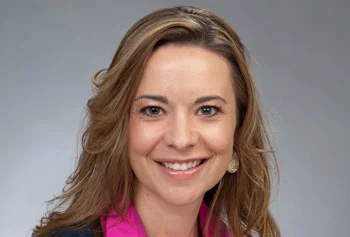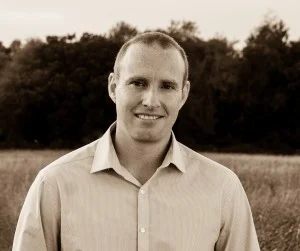As we focus more and more on the quantitative aspects of alumni relations, it's important not to let the qualitative facets of our work slip.
Heather Makrez, director of alumni relations at the University of Massachusetts Lowell, and Kevin Fleming, director of alumni relations at Emerson College, do some of their best work on the qualitative side of alumni relations.
This week, Makrez and Fleming are chairing a panel at the Case Division I conference in Boston titled, "We are Family: Making Alumni Feel Part of the University Community."
We asked them how they take care of their extended alumni family.
Making sure alumni feel like they belong to their alma mater’s community is a fundamental part of alumni relations. But as we try to calculate the return on investment of our efforts, the value of this part of our work is hard to quantify. How would you argue in its defense?
Heather Makrez of UMass Lowell.
HM: Alumni Relations has long been yearning for an accurate way to quantify ROI. For many years, number of events, number of attendees at events, number of volunteers, and number of donors were used as sole measurements of success.
This then evolved into overlaying other filters to gauge success such as first time event attendees who gave their first gift after attending an event. As many universities enter comprehensive campaigns, building a pipeline of alumni becomes an even more valuable commodity, therefore, we need to look outside of the mass numbers, and look at the quality of relationship building happening at all levels of engagement.
One never knows who will be the next rising star, who will be the next Bill Gates, who will be the next Nobel Prize winner; therefore it is up to Alumni Relations to treat all alumni with a sense of value and purpose.
As we look to expand our opportunities for students, scholarship support, annual giving and major gifts are not the only valuable programs we need to expand upon. Stewardship and engagement are just as valuable.
Tracking alumni participation in multiple programs is extremely important. We have implemented secondary prospect management tools to help us keep up these relationships and evaluate the effectiveness of these efforts. We should be tracking those alumni who help with university priorities across the board.
Universities need to have strong co-op programs, engaging mentoring opportunities and effective job placement pipelines, alumni relations can help with all of these initiatives. Engaged alumni who feel like they are part of our community are the ones who can effectively help us scale these programs and make a mark on the economy. They can also strengthen the pipeline of our prospects and make a mark on the endowments and alumni giving percentages of their alma mater.
Kevin Fleming of Emerson College.
KF: Heather provides an articulate and compelling need to have knowledge of the quantitative measurements that help portray a sense of the number of people you are reaching, and the channels through which we reach them, yet to realize that they do not encapsulate the impact of our work.
We must become excellent story tellers, in that we need to highlight the alumni stories that fill in the gaps that lie between the numbers and portray how our efforts effect sentiment, for, ultimately, shifting sentiment will help shift behavior.
For instance, a community service initiative may only involve a small number of volunteers, but the sense of community they develop, pride in their institution, and realization of collective accomplishment that the alumni volunteers feel as a result of their involvement is incredibly powerful. In this instance, highlighting quotes that reflect these sentiments from alumni volunteers, alumni following the story through the institutions media channels, and those who benefited from the work they did can help provide a more complete and compelling representation of the power your work is having—particularly when paired with quantitative data that show statistics such as social media traffic, volunteers who subsequently donated, etc.
The more stories we tell about the sentiment our work elicits and the more sophisticated we become at telling these stories, the stronger our collective sense of community becomes—and better the effect of our work is understood.
What, in your experience, are the most effective strategies for ensuring that alumni feel like an integral, valued part of the university community?
KF: I think the most important component of ensuring that alumni feel valued and cared for is to make sure that the essence of what made their experience so valuable during their time as a student is still present in the university of today and tomorrow.
As the institution evolves, alumni want to hear the echoes of their voice resonate in the fabric of the institutional chorus, and to be able to help meaningfully contribute to the sound of the music that we continue to make together. This means that we need to provide as many opportunities for alumni to involve themselves in the university community as possible, and to then follow up to let them know how their participation has helped shape the progression of the institution.
Again, to share the story of how their experience is still present in the university, and that they can continue to play a meaningful part in shaping their alma mater. In short, they need to see that the core values of the institution remain intact, that there are continued opportunities to involve themselves in shaping the community, and that their involvement has an effect on the evolution of the institution.
HM: Kevin is right. Weaving their story into the tapestry of an institution's legacy is one of the best ways to make alumni feel recognized and their legacy realized.
Alumni want to feel like they belong. They want to feel like they are a valued part of the university, especially when we are asking them to give of their time and their resources. There are so many institutions out there that need the support of the public, therefore, universities must make their case that because of the personal experience an alum had, they are in a unique position to passionately support an alma mater that helped shape them into the person they have become.
In order to make alumni feel special, you must make them feel like they are part of the “family.” They need to know that you genuinely want their input, and that you genuinely care about who they are as a person.
Sharing your own personal stories with them, while they share theirs can help create a base of trust. Trust then is the primary foundation for your relationship to grow off of. From there, providing alumni with gestures of gratitude, access to information and unique experiences can help accelerate the support of alumni to their alma mater.
Tracking these relationships in your database is very valuable in staying on top of relationship milestones. Creating “secondary prospect managers” for alumni relations staff, as I mentioned earlier, in addition to directors of development can assist in ensuring communication happens when there are multiple university relationships taking place.
This secondary manager system also allows for an addition tier of reporting. We have found hand-written birthday cards, congratulatory cards, and personal notes go a long way in creating long-lasting bonds with alumni.
If you could give one piece of advice to alumni relations offices who want to make generating a sense of belonging one of their priorities, what would you tell them?
HM: If I could give one piece of advice that would help create this special bond with alumni, I would say to be genuine. Alumni Relations is about treating others as you would want to be treated. It is not something that has a complex formula. It is not something where we need to reinvent the wheel. We need to pay attention to personal needs and tendencies of alumni, and make sure we show them that we are all in this together. We cannot do it alone, and we truly appreciate any level of engagement that they feel like they can provide at any given time.
KF: This is excellent advice from Heather, and gets to the heart of how to best create and manage relationships: be genuine to yourself and to others.
To focus on one particular aspect of being genuine, I have found that appreciation has been the single most valuable tool that I have at my disposal to create and maintain strong relationships. It’s easy to do, can come in many forms, can be instantaneous, and can have long lasting effects that help build robust relationships that persist through any differences in perspectives that may arise.
Additionally (to stray from the “one piece of advice” rule—please forgive me!), I would add that having a strong sense of humor and fun is also essential. This allows you to approach your work with creativity and energy, and the spirit in which you approach your efforts will pervade through your programming and ultimately enhance the sense of joy and awe that alumni have towards the institution.
Believe it or not, I find that a good sense of humor also engenders trust from others as well.
When alumni feel that their contributions are deeply appreciated and that they can laugh with you through the process of evolving as an institution, your alumni will feel a sense of belonging that will show up in all facets of what you do.
HM: Kevin is right! Where would we be without humor?!


